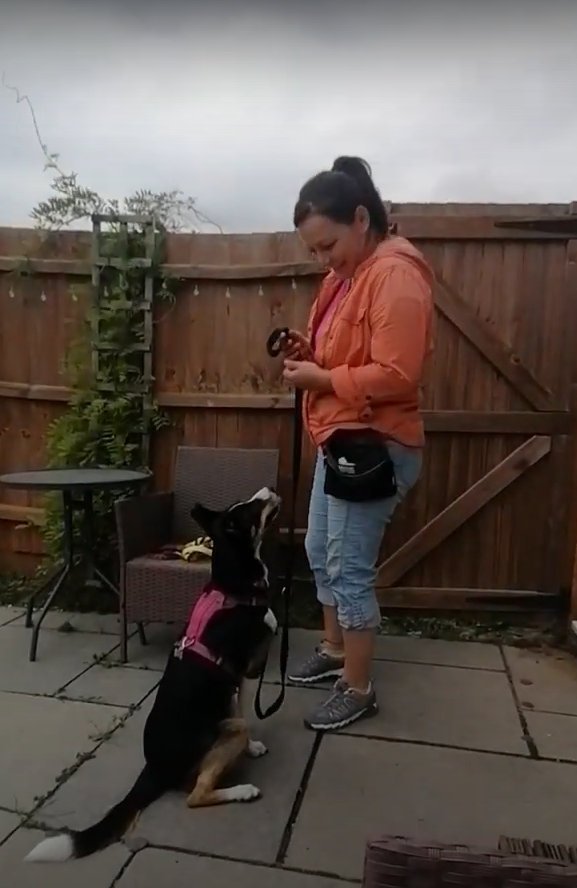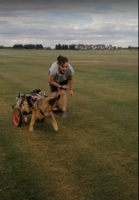

When choosing a behaviourist to help you, always look for the COAPE Endorsed and CABTi kitemarks.
COAPE (Centre of Applied Pet Ethology) endorsed behaviourists are highly trained professionals specializing in the field of animal behaviour. They have earned their endorsement from COAPE, a well-respected institution known for its rigorous training programs and commitment to promoting positive relationships between humans and animals. These endorsed behaviourists play a crucial role in helping guardians understand and address their animals’ unique needs, fostering healthier and happier homes for both animals and their human caregivers. Each COAPE Endorsed Behaviourist has signed and adheres to the COAPE Code of Conduct.
Here are some key aspects to understand about COAPE endorsed behaviourists:
Comprehensive Training: COAPE endorsed behaviourists undergo extensive and comprehensive training programs that cover a wide range of topics related to animal behaviour, including the unique-to-COAPE-qualified MHERA methodology, psychology, ethology, physiology, neuroscience, animal emotionality and communication. This training equips them with the knowledge and skills necessary to assess and address a variety of behavioural challenges in different species of animals.
Holistic Approach: These behaviourists adopt a holistic approach to animal behaviour, taking into account not only the observable actions of the animal but also the underlying emotional and psychological factors that influence behaviour. They understand that behavioural challenges are often rooted in fear, anxiety, past experiences, or even physical health problems.
Ethical and Science-Based Methods: COAPE endorsed behaviourists prioritize the use of ethical and science-based methods to modify and manage animal behaviour. They avoid punitive or coercive techniques and focus on positive reinforcement, which encourages desired behaviours through rewards and positive experiences. COAPE strongly believes in the “do no harm” approach and believe that it is possible to help animals without resorting to fear, intimidation or pain.
Tailored Solutions: Each animal and their behaviour are unique, and COAPE endorsed behaviourists recognize this. They work closely with caregivers to develop individualized behaviour modification plans that address specific challenges and cater to the needs and preferences of both the animals and the humans.
Empowering people: COAPE endorsed behaviourists not only work with pets but also educate and empower pet owners. They help owners understand the reasons behind their pets’ behaviour and provide them with the tools and knowledge needed to reinforce positive behaviours and manage any challenges that may arise.
Promoting Animal Welfare: By addressing and resolving behavioural challenges, COAPE endorsed behaviourists contribute to the overall welfare and well-being of animals. They play a crucial role in preventing pet relinquishment and abandonment, as well as improving the quality of life for pets and their families.
COAPE endorsed behaviourists are dedicated professionals who bring a wealth of knowledge and experience to the field of animal behaviour. Their commitment to ethical, science-based, and holistic approaches ensures that animals and their human companions receive the best possible care and support when dealing with behavioural challenges. These experts are instrumental in fostering harmonious relationships between humans and their beloved animal companions.
CABTi, which stands for the COAPE Association of Behaviourists and Trainers International, is an organization that provides education, certification, and support for COAPE Qualified professionals specializing in behaviour therapy and training. CABTi members are individuals who have successfully completed COAPE and CABTi’s rigorous training programs and have been officially recognized and endorsed by the organization as qualified experts in the field of behaviour and training. Here are some additional key points to understand about CABTi endorsed members:
Comprehensive Training: To become a CABTi member, individuals must successfully complete a COAPE Diploma course (extensive and specialized training programs offered by COAPE.) These programs cover a wide range of topics related to canine behaviour, including the MHERA behaviour assessment and ESTA modification techniques.
Ethical and Science-Based Approach: CABTi members adhere to ethical and science-based principles in their work with animals. They prioritize positive reinforcement and humane training methods, avoiding harsh or punitive techniques that can harm the animal’s well-being. All CABTi members have signed the CABTi Code of Conduct.
Individualized Behaviour Plans: Just like COAPE endorsed behaviourists, CABTi endorsed members create individualized behaviour modification plans for each client. These plans take into account the unique needs, history, and temperament of each animal, as well as the goals and preferences of the animal’s guardian.
Continuous Learning: The field of behaviour is dynamic, with ongoing research and developments. CABTi members are committed to staying informed about the latest advancements in the field. They engage in continuous education and professional development to provide the most up-to-date and effective services to their clients.
Looking for a COAPE Qualified and Endorsed, world-class behaviourist or trainer?
To use the search function, type in the location and set the search radius. Then click on the Practitioner’s name for their details and services.
If there are zero results in your area, consider contacting one of the practitioners who offer Zoom consultations for assistance.







